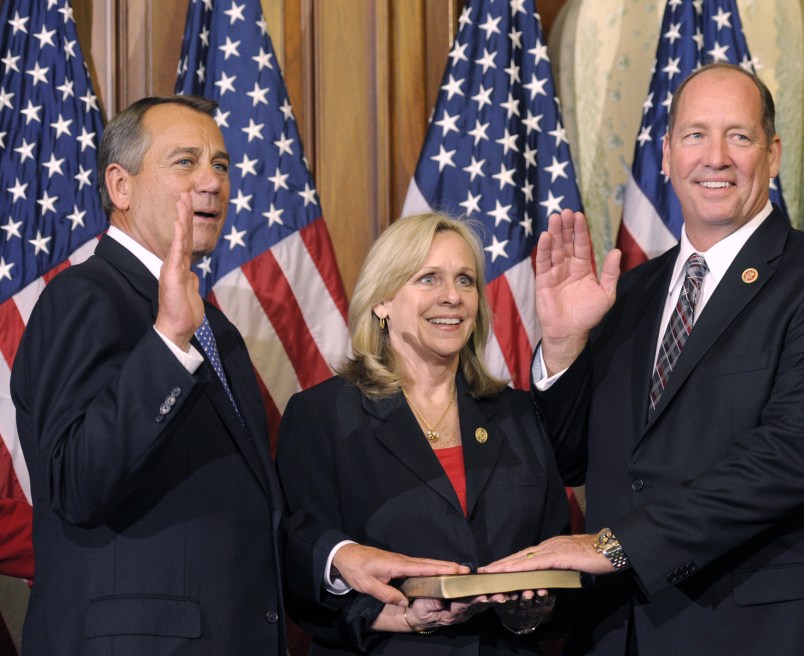Earlier this week Rep. Ted Yoho’s (R-FL) 2012 comments surfaced. “I’ve had some radical ideas about voting and it’s probably not a good time to tell them, but you used to have to be a property owner to vote,” he told a cheering audience.
Alexander Keyssar, Stirling Professor of History and Social Policy at Harvard University and a member of the Scholars Strategy Network, weighed in on the multitude of reasons why Yoho (pictured, right) is just plain wrong:
Congressman Ted Yoho’s interest in re-imposing property requirements to vote is yet another sign of his party’s interest in rolling back two centuries of progress in American political life. Property requirements were, indeed, the norm for the first several decades of our history (as were gender and racial restrictions), but they were overturned almost everywhere by the middle of the nineteenth century.
Why? Because the American people – in one state after another — concluded that property requirements were profoundly undemocratic, that the ownership of property did not endow a person with greater wisdom or judgment, and that people without property had the right to defend and promote their own interests through the ballot box. “If a man can think without property, he can vote without property,” observed a delegate to Louisiana’s constitutional convention of 1845. To link the franchise to property ownership was to undermine the emerging democracy of which Americans were so proud.
Among those who made the case very forcefully were propertyless soldiers and militiamen who were called upon to defend their country in wartime. The “non-freeholders” of Richmond, Virginia, complained that “if the landless citizens have been ignominiously driven from the polls in time of peace, they have at least been generously summoned in war, to the battlefield.” Is the congressman comfortable disfranchising our men in uniform who also fail to own property?
Perhaps the most pungent (and oft-repeated) critique of property requirements came from Benjamin Franklin, writing in an era when farm animals constituted an important form of property:
“Today a man owns a jackass worth fifty dollars and he is entitled to vote; but before the next election the jackass dies. The man in the mean time has become more experienced, his knowledge of the principles of government, and his acquaintance with mankind, are more extensive, and he is therefore better qualified to make a proper selection of rulers-but the jackass is dead and the man cannot vote. Now gentlemen, pray inform me, in whom is the right of suffrage? In the man or in the jackass?”
And oh yes: the Supreme Court in 1966 ruled that any financial requirements for voting were unconstitutional.
Boom. Keyssar successfully schools a conservative politician on the Constitution.






